Will Bangla speakers ever be culturally united?

We usually understand language as a means of communication between people. But language is not limited to communication alone; it also affects or shapes power structures and sociocultural identity. In the age of neoliberalism, language is caught in a complex web where politics, commercialisation, globalisation, cultural exchange, and language rights are all intertwined. Their collective influence determines which languages gain influence and which lose importance or face extinction. Language can also be a source of ethnic tensions and even hatred.
The reason for this little introduction is to draw attention to the recent activities of India's ruling bloc in relation to the Bangla language and its speakers, and the divisions that have emerged in response. One such instance saw a letter from Delhi Police, dated July 24, referring to Bangla used by suspected illegal immigrants as a "Bangladeshi language." This caused an outrage in West Bengal, where the Trinamool Congress (TMC) accused BJP of insulting Bengali identity through such mischaracterisation. The BJP, however, alleged that TMC was defending illegal Bangladeshi settlers, asking whether "a heavily Urdu-influenced dialect" could qualify as the "real" Bangla language.
West Bengal BJP President Shamik Bhattacharya even attempted to draw a line between two versions of Bangla: "You bring a book from Bangladesh and read it and read any book from West Bengal. After reading the two books, you will understand which one is written by Subodh Sarkar and which one is written by some Shafiqul Islam from Bangladesh," he said.
Around the same time, there have been a number of incidents across India reflecting a broader pattern of linguistic profiling and harassment. For instance, on August 20, Hindi-speaking businessmen and shopkeepers beat up a dozen Calcutta University students in Sealdah, calling them "Bangladeshi" and "Rohingya" for refusing to speak Hindi. Beyond West Bengal, similar incidents have unfolded in Odisha, Uttar Pradesh, and other BJP-ruled states, where Bangla-speaking migrant workers have been harassed, assaulted, or even detained on suspicion of being "illegal Bangladeshis." In several cases, those with valid documents were still picked up or pushed across the border in so-called "push-back" operations, showing how language is being used as a proxy for exclusion and expulsion.
But isn't Bangla the mother tongue of both Indian and Bangladeshi Bengalis? According to the Constitution of India, there is no national language as such. Hindi is just one of the two official languages of the Union, alongside English, while 22 languages, including Bangla, are recognised in the Eighth Schedule. Why, then, are Bangla speakers being targeted?
The project that the BJP-RSS bloc is trying to impose through language politics aims to strengthen the North Indian power structure by projecting the inevitability of their Hindutva vision (Hindu-Hindi-Hindustani). Although this agenda has faced strong resistance in South India, and from progressive Indians elsewhere, in West Bengal it is playing out as Bangla against Bangla. Regional dialects and preferences, both spoken and written, are being manipulated to support a "Bangladeshi"/"foreigner" narrative and sow divisions.
It is well known that many people from West Bengal migrate to other Indian states or countries in search of work. Many do not speak the standard, urban Bangla of Kolkata, and are thus branded as "Bangladeshi" and sometimes pushed across the Bangladesh-India border. That said, it has to be acknowledged that the usefulness of Bangla has been diminishing in West Bengal for a long time. In Bangladesh, too, the dominance of English in official workspaces continues to marginalise Bangla speakers. Not being fluent in English is considered a greater weakness than lacking fluency in Bangla. These are modern urban manifestations of a deeply entrenched colonial mindset.
By contrast, rural people still follow the Bengali calendar in all their work—whether in farming, festivals, or lunar schedules. In many cases, this calendar is their primary guide. Here, language and culture are still largely tied to their everyday existence, transcending even religious divides.
Contemporary developments in both India and Bangladesh may make it easy to forget, but the wider region once known as the Indian subcontinent has a long history of struggles for the Bangla language. One of the earliest took place in the erstwhile Manbhum district (then in Bihar, now mostly Purulia in West Bengal), which was historically inhabited by Bangla speakers. Their long struggle known as the Tusu Satyagraha, drawing inspiration from the traditional Tusu songs, saw them fight for the recognition of Bangla as the official language there. Then, the Language Movement of February 21, 1952 in Dhaka became a milestone in world history, securing Bangla's place as a state language of Pakistan. In Assam's Barak Valley, too, Bangla speakers laid down their lives: on May 19, 1961, 11 protesters, including a woman, were killed in Silchar while opposing the imposition of Assamese as the sole official language there.
Unfortunately, despite these glorious movements and sacrifices for the language, Bangla speakers have never been able to establish a united cultural front. Again and again, they have been divided—by colonial tendencies, by radical nationalist politics, sometimes on religious grounds, sometimes regionally, and sometimes across borders. Some sow division from within the country, others from abroad. That is why it remains doubtful whether Bangla speakers scattered across Karachi, North India, Assam, Tripura, and Bangladesh will ever reach some unity, even within their respective borders, based on their common linguistic heritage.
This is not a call for establishing linguistic dominance, but for preserving the history and culture of the language through united efforts—something that could serve as a source of strength for the speakers of other languages struggling against similar politico-cultural marginalisation. Such unity could also create shared opportunities in the cultural marketplace. Books, songs, films and other products of culture could together form a vibrant market for the 30 crore Bangla speakers, however loosely connected, thus strengthening their collective confidence and offering a shield against all humiliation.
But who will create such unity?
Dr. Eshita Dastidar is an independent researcher.
Views expressed in this article are the author's own.
Follow The Daily Star Opinion on Facebook for the latest opinions, commentaries and analyses by experts and professionals. To contribute your article or letter to The Daily Star Opinion, see our guidelines for submission.

 For all latest news, follow The Daily Star's Google News channel.
For all latest news, follow The Daily Star's Google News channel. 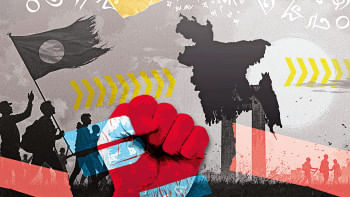
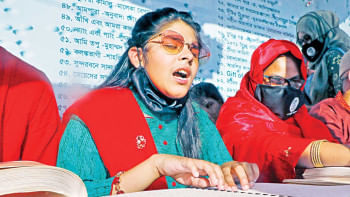



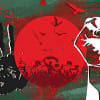
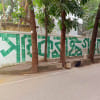

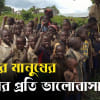

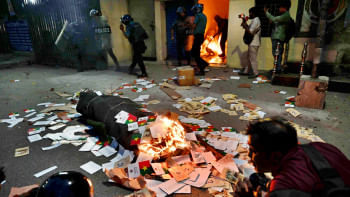
Comments